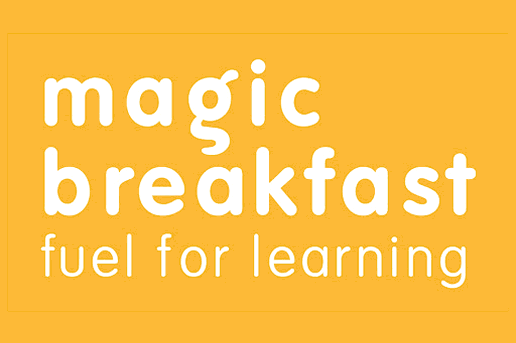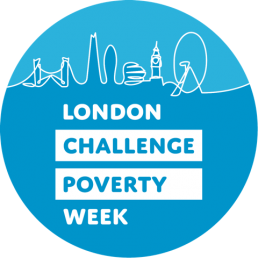4in10 Newsletter 28.10.2021
4in10 Newsletter with data, information, reports from London Challenge Poverty Week, other events, calls for action and much more. For this issue click here.
Hunger Still Here - Magic Breakfast Campaign
Levelling-up School Breakfast
Please demand sustainable funding for school breakfasts, email your MP now.
A plan to improve the life chances of pupils hardest hit by the Covid-19
The levelling-up agenda is about healing some of the great social divides in our country and giving everyone a chance to climb the ladder of opportunity.
This proposal offers a bold new intervention with a proven track record that would enable the Government to take the levelling-up agenda further, faster, by comprehensively addressing child morning hunger. It would enable schools to reach 893,000 of the most disadvantaged children and their families with a nutritious school breakfast, costing the Department for Education an additional £75 million annually.
This spending proposal builds on the original work of the charity Magic Breakfast and the Department for Education delivering school breakfast provision in 2014 and 2018-2021[i].
The Proposal
The proposal is modestly costed, with expenditure raised from existing tax revenue. It would apply to all eligible state funded primary, special schools, and pupil referral units, with an option for later expansion to state funded secondary. It should replace the Department for Education’s current National School Breakfast Programme (NSBP), which reaches only 30% of eligible schools and doesn’t offer these schools the support they need to reach children most at risk of hunger. This proposal improves on current NSBP provision by making school breakfast provision permanent, sustainable, and available for all schools with high levels of disadvantage. The proposal will apply to England only, as education is a devolved issue.
The proposal will give schools with significant evidence of need support to provide a free nutritious breakfast, that meets School Food Standards, to all children. ‘Significant evidence of need’ will be defined within existing DfE guidance as schools with at least 50% of pupils in IDACI bands A-F. IDACI, The Income Deprivation Affecting Children Index, estimates the number of children living in low-income households and bands A-F signify the highest levels of deprivation. Schools will be guaranteed additional funding to cover the costs of breakfast food and delivery. Schools will also benefit from dedicated staff support in the form of an expert ‘school partner’, who are proven to play a key role in improving the uptake of the hardest-to-reach families and the effective implementation by schools of the breakfast provision[ii].
The proposal will also place a requirement on the Department for Education (DfE) to offer funding for the food and delivery costs of school breakfasts for the estimated 7300 schools with 50% or more of pupils in IDACI bands A-F.
All schools receiving funds to provide free school breakfasts would be required to adhere to a set of terms and conditions, designed to ensure funding reaches children at risk of hunger. Schools would be held accountable and required to report on pupils helped and funds spent annually by submitting a report to DfE and publishing it on their website.
Benefits/Impact
Reducing food insecurity:
2.3 million children are currently living in a household experiencing moderate to severe food insecurity, where families are compromising on the quantity and quality of the food they consume[iii]. This proposal would reach 893,000 primary age children in households of multiple disadvantage with a hunger focused intervention.
Closing the attainment gap:
School breakfast hunger contributes to the educational attainment gap. Children from disadvantaged backgrounds are more than 9 months behind their wealthier peers by the time they leave primary school, limiting further education and employment opportunities.[iv]
An Institute for Fiscal Studies evaluation found that Year 2 pupils in schools with universal free school breakfast provision made two months additional academic progress over the course of a year, compared to children in schools with no breakfast provision[v]. The study also reported that the pupils’ concentration and behaviour improved too. Additionally, teachers surveyed by a Kellogg’s report noted that children arriving at school hungry missed out on one hour of learning each day.[vi]
Benefits to life chances and future earning potential
A study by Leeds University found that children who regularly ate breakfast achieved an average of 2 GCSEs grades higher than children who rarely ate breakfast[vii]. Research by Pro Bono Economics found that for every £1 invested by government in school breakfast provision, there is £50 of returns in the economy in the longer-term due to increased lifetime earning potential[viii].
Cost
This proposal would benefit 893,000 children and involves additional Department for Education expenditure of £75m per year, replacing existing breakfast provision with an intervention that reaches children in a hunger-focused and stigma-free way.
Costings and assumptions have been developed from work with Magic Breakfast, Heinz and Pro Bono Economics, as well as known costs from the NSPB delivered by Magic Breakfast and Family Action for the DfE, which ended in 2021. Full workings can be supplied on request.
Funding sources
The Soft Drinks Industry Levy (SDIL): The SDIL raises approximately £340m annually and was intended for programmes benefiting school children’s diets and physical activity.
We are proposing £75m could be allocated using existing unallocated monies within the SDIL. Additionally, the Children’s Food Campaign have estimated that £50m in revenue could be raised to the SDIL via adjustments to the threshold for high-sugar products.[ix]
[i] National School Breakfast Programme | Magic Breakfast
[ii] Education Endowment Foundation. The National School Breakfast Programme: Scale-up Evaluation Report. September 2021, https://d2tic4wvo1iusb.cloudfront.net/documents/projects/NSBP-evaluation-report.pdf
[iii] The Food Foundation. The impact of Covid-19 on household food insecurity. January 2021, FF_Impact-of-Covid_FINAL.pdf (foodfoundation.org.uk)
[iv] Education Policy Institute. Closing the gap? Trends in educational attainment and disadvantage. August 2017, Closing-the-Gap_EPI-.pdf
[v] Educational Endowment Fund report, with the Institute for Fiscal Studies acting as the independent evaluator. January 2017, Magic Breakfast | EEF (educationendowmentfoundation.org.uk)
[vi] Kellogg’s. A lost education: The reality of hunger in the classroom. September 2013, R2_Kellogg_A_Lost_Education.pdf (kelloggs.co.uk)
[vii] The University of Leeds. Associations between habitual school day breakfast consumption frequency and academyc performance in British adolescents. November 2019, Frontiers | Associations Between Habitual School-Day Breakfast Consumption Frequency and Academic Performance in British Adolescents | Public Health (frontiersin.org)
[viii] Pro Bono Economics. The Magic Breakfast model of school breakfast provision. February 2021, The Magic Breakfast model of school breakfast provision | Pro Bono Economics
[ix] Sustain. Five Actions for government spending review to increase children’s access to healthy food. September 2021, https://www.sustainweb.org/news/sep20-csr20/
4in10 Newsletter 14.10.2021
4in10 Newsletter with news, data, events featuring London Challenge Poverty Week, funding and much more. For this issue click here.
4in10 & GLA Poverty Research Published 11/10/21
Flying Against Gravity
A dynamic piece of new research into the lives and aspirations of those on low income and living in London. The research is a joint initiative between 4in10 and the GLA commissioned to coincide with start of London Challenge Poverty Week 2021. View the full report here.
LONDON CHALLENGE POVERTY WEEK - EXCITING UPDATES.
LONDON CHALLENGE POVERTY WEEK.
WHAT, WHERE AND WHEN.
Excitement is building as London Challenge Poverty Week approaches. Running from the 10th to the 17th October this is the annual opportunity to bring the dreadful impact of poverty to the fore in London.
The Launch Event on the 11th October will feature the findings of research carried out by 4in10, The GLA and ClearView Research on Londoner’s Attitudes to Poverty. Flying Against Gravity.
There is an in-person Child Poverty Summit organised by The Childhood Trust and London Child Poverty Alliance and so much more.
It is fantastic to see the hard work that goes on all year round being highlighted. Events happening locally could not be more diverse, which reflects the strength of our network and the determination of our sector:
- Adanna Women’s Project in Redbridge are running an event for black girls aged 13-16, aimed at building confidence and improving skills.
- ATD 4th World are running two poetry events one live in Brixton and one online.
- Barking and Dagenham Youth Dance have written and choregraphed a 3 minute video about their feelings about the impact of poverty on families.
- Bin Knives Save Lives, Ilford are holding an awareness event highlighting the link between poverty and knife crime.
- Brite Box Project/Voices of Hope, Kingston are hosting a Sunday ‘banquet’ to draw attention to their food delivery programme and to gain more local support.
- Broad Bikez Hackney are running a session of free bike DIY helping people learn how to mend their own bikes
- Commission on Social Security are presenting their report on what is wrong with the current system and how to put it right.
- Gingerbread are producing some beautiful infographics about the impact of poverty on lone parents.
- Home Start Ealing are running a food and nutrition event for some of the many young families they support
- Jade Mutua Foundation in Brent are running two events one to attract local businesses and volunteers to support their work and the other a family fun day to promote their services.
- Just Fair and the Social Rights Alliance are running an online session on using human rights as a tool to tackle poverty.
- Lewisham Local with Afril, Wild Cat Wilderness and other community gardens in the borough are running 5 workshops on gardening, foraging, campfire cooking, and pizza making, with a focus on Holiday Hunger.
- Poplar HARCA are promoting a food drive in Tower Hamlets during the week.
- Red Roots Incubator in Hackney are running a young people’s event, ‘Unite4Change’ involving young people’s local focus groups, showcasing creative talents and solidify pathways to empower future success.
- Resources for Autism are hosting a webinar on the hidden costs of bringing up a disabled child.
- Restorative Justice for All in Southwark will be running online youth-led campaigning activities focusing on young people, mental health and health inequalities and a linked ‘youth walk.’
- Solace Women’s Aid are holding art activities in all of their London refuge’s to highlight children’s feelings about poverty and inequality.
- St Michael’s Fellowship in Lambeth are creating a podcast specifically about young fatherhood and poverty, and asking parents to produce some poetry or artwork and create some social media content.
- Sustain are running two food poverty online events. One on the Healthy Start scheme and the other on how local collaboration can help tackle food poverty and move towards food justice for all.
- Universal Ease to Redress in Islington are holding a week of open days focussing on volunteering and food provision.
Local Authorities, The GLA, Trust for London and London Councils are all involved in supporting events and it is great to see that some local MPs are taking the time to visit participating organisations to learn more.
New events are being listed all the time so keep an eye on the LCPW website for more updates and please do try to sign up for anything that interests you.
4in10 Newsletter 30.09.2021
4in10 Newsletter with events, training, news, data, funding and much more. For this issue click here.
Universal Credit Cut. A Letter to MP's
Sutton Voluntary Sector have sent a jointly signed letter to their MP's to detail exactly what the cut to Universal Credit will mean locally. They have suggested sharing it for anyone to adapt to their locality. Thank you to Steve from Sutton CAB for this:
Dear MP's Name
Universal Credit
As you will recall, we have previously exchanged correspondence and had a useful meeting about the ending of the Universal Credit Coronavirus uplift. Over the last few weeks, there has been a lot of media coverage and commentary about the issue. There is a lot of concern among staff and volunteers in Sutton voluntary sector organisations about how the ending of the uplift will impact on Sutton residents. I am writing on behalf of the Sutton voluntary sector organisations listed at the bottom of this letter. We all have concerns about the £20.00 per week reduction in Universal Credit; concerns that recently have been exacerbated by the impending increases in fuel costs and food price inflation.
We would be grateful if you would consider asking the government to reconsider its decision to end the uplift. We hope that the information below, about the impact of the reduction in Sutton and the Universal Credit regulations will be helpful to you.
There were, according to official DWP figures, 15,493 Sutton households ‘on’ Universal Credit as of May 2021..
The government increased the Universal Credit ‘standard allowances’ in 2020 in response to the Coronavirus pandemic. A monthly ‘standard allowance’ is included in the calculation of every UC claim. There are different standard allowances for people for single people, couples and people under and over the age 25. The standard allowances are, as you can see from this table, quite low.
| Standard Allowance | Current Rate | Rate from 6th October 2021 |
| Single under 25 | £344 | £257.33 |
| Single 25 and over | £411.51 | £324.84 |
| Couple under 25 | £490.60 | £403.93 |
| Couple aged 25 or over | £596.58 | £509.91 |
We can illustrate the impact of the Universal Credit reduction with an example calculation. The client is an illustration, but the calculation is based on actual Universal Credit amounts.
The claimant is a lone parent with one daughter aged 14. Her current ‘maximum amount’ of UC for is £694.01 per month (plus housing costs). This maximum amount is comprised of the £411.51 standard allowance and the Child Amount of £282.50.
The claimant works part time. She earns £520 per month (net). The calculation of her UC includes a ‘work allowance.’ She can earn £293 per month without her UC being reduced. She has earnings of £227 over her work allowance. Every £1.00 of earnings over the work allowance reduces Universal Credit by £0.63 – i.e., earnings ‘taper’ UC entitlement at 63%.
The calculation of her UC entitlement compares her maximum UC - £694.01 (plus housing costs) with her income. She is treated as having income of £143.01 (63% of net earnings minus the work allowance). She is therefore entitled to UC of £551 per month, plus housing costs. Child Benefit is paid in addition to Universal Credit.
From 6th October, the claimants maximum Universal Credit is £607.34. This is comprised of £324.84 standard allowance and Child Amount of £282.50. She will then be entitled to UC of £464.33 (plus housing costs). This is a reduction of £86.67 per month.
As you can see from this example, Universal Credit is reduced by £0.63 for every £1.00 of earnings over the work allowance. Only people responsible for a child or people with a limited capability for work have a work allowance. Other people such as those without dependent children and carers (who do not otherwise qualify) do not have a work allowance.
Most claimants cannot therefore make up the £86.67 per month shortfall by working additional hours. If the claimant in the above example increased her working hours and therefore her net pay by £86.00 per month, she would lose £54.18 from her Universal Credit, meaning that she would, despite earning £86 more per month, only gain £31.82 per month - so the claimant can clearly not make up the £86 per month reduction in benefit by earning an additional £86 per month.
Many people in receipt of Universal Credit do not have any realistic way of making up for the £86 per month reduction at all. Some 60% of people in receipt of Universal Credit are not in employment. People may for example have a limited capability for work, be caring for a severely disabled child or adult or be a lone parent with a young child. Some people in receipt of Universal Credit are working full time (and need the benefit to help with rent), so cannot further increase hours and therefore cannot, in any way, make up the reduction. We would like to stress, that even if people can increase their earnings, those earnings will reduce Universal Credit by £0.63 for every £1.00 of earnings.
You can see, from the above table, that the Universal Credit standard allowances are quite modest. The standard allowances are the basic entitlements for single people or couples. Although these allowances are not designed to cover rent or council tax and claimants may also receive amounts for children, caring responsibilities and having a ‘limited capability for work- and work-related activity,’ the amounts are very low when compared to the ‘Standard Financial Statement’ ‘Trigger figures.’
Debt advisers, such as the Citizens Advice Sutton debt team use a Standard Financial Statement. The Standard Financial Statement includes ‘trigger figures’ The trigger figures are pre-agreed levels for certain areas of discretionary household expenditure. The trigger figures help identify levels of monthly expenditure deemed reasonable when completing the statement. Debt advisers do not need to explain the financial statement to creditors unless the trigger figures are exceeded.
The Universal Credit amounts are inadequate to allow claimants even the trigger figure amounts of discretionary expenditure. The Standard Financial Statement ‘allows’ a single adult to spend a total of £666 per month on ‘discretionary’ items – communications / leisure and groceries etc. However, the Universal Credit Standard Allowance for a single adult (over 25) is currently only £411.51 per month and is due to decrease to only £324.84 per month.
The Standard Financial Statement ‘allows’ a single adult with a dependent child to spend a total of £885 per month on ‘discretionary’ items. However, a single parent with one child could receive Universal Credit of no more than £648.59 per month (due to decrease to only £562.92 per month) plus Child Benefit of £21.15 per week. Even including Child Benefit, the family’s income would total only £740.24 per month, decreasing to only £654.57 per month in October.
Furthermore, many people in receipt of Universal Credit have a shortfall between their rent and the amount of housing costs included in their UC calculation – the Local Housing Allowance only covers the 30th percentile of local rents.
A very high proportion of Citizens Advice Sutton debt advice clients are in receipt of Universal Credit and have a ‘deficit budget’ – in other words, their incomes are inadequate to cover even essential expenditure such as rent, utilities and food.
We understand that the government introduced the £20 per week uplift as a temporary measure, in response to the pandemic. However, many people need to claim Universal Credit for the long term. As we have said above approximately 40% of Universal Credit claimants are in employment and need Universal Credit to help pay rent. Many of these people have not seen any improvement in their situation since the introduction of the uplift – in fact their financial positions may have deteriorated due to rising food costs and will deteriorate further with increases in fuel costs. The Citizens Advice Sutton debt team has seen an increase in demand in recent months.
We hope that this information is helpful to you. We would be grateful if you would ask the government to reconsider their decision to end the Universal Credit uplift – a decision that will have significant adverse financial consequences for over 15,000 London Borough of Sutton households.
Yours sincerely
LONDON CHALLENGE POVERTY WEEK: WHAT'S ON
Between the 11th and 17th October 4in10 hosts London Challenge Poverty Week.
There are events and activities planned all over London and online. Check out the LCPW website for full details and get involved!
Examples include:
The London Poverty Summit talking place in person on Thursday 14th October .30 - 5.30.
Barking and Dagenham Youth Dance - Interpreting what poverty means to families and young people. Online throughout the week.
JustFair and Social Rights Alliance Webinar – Using Human Rights As A Tool To Tackle Poverty. Monday 11th October 13:00 – 15:00
Newham Social Welfare Alliance and Anti-Poverty Alliance and the Commission for Social Security both have online events planned for Wednesday 13th October.
During London Challenge Poverty Week, Lewisham Local are running five online food-growing related workshops for families to tackle holiday hunger and encouraging visits to some of the wonderful community gardens in the borough.
And on Monday 11th and Sunday the 17th Join ATD 4th World in both in person and online poetry events.
For a full list of what is on and to keep updated visit https://londonchallengepovertyweek.org.uk/whats-on/
4in10 Newsletter 16.09.2021
4in10 Newsletter with data, information, training, funding and much more. For this issue click here.
4in10 Newsletter 02.09.2021
Welcome back after the summer to a bumper 4in10 Newsletter with information, training, funding and much more. For this issue click here.
#KEEP THE LIFELINE - Day of Action 17th August
Let's make as much noise as we can to show opposition to the cut to Universal Credit and what it will mean.
One Conservative MP has said he has heard no concerns about this from his constituents. Let's change that. They should not be able to say they don't know of any impact from this decision.
Save the Children Fund have come up with some really useful resources:
- Web page with info for UC & WTC claimants & writing to their MP
- Web page with info for legacy benefit claimants & writing to their MP
- Web page for supporters with write to MP instructions
- A ‘Campaign guide’ - a guide for smaller organisations or leaders who are keen to get involved. It has details of the campaign, links to assets, write to MP guidance and suggested tweets.
The aim on the day is to:
- Raise awareness of the cut & how it will impact families
- Create a twitter buzz that ideally trends
- Create a space for claimants and people working with them to share how the cut will affect individuals
- Encourage MPs to show their public support
- Generate media coverage
To generate as much social media and media action as possible it would be great if we could all tweet our support and share with others about the day and call to action.
With that in mind it would be great to let as many people in your networks know about the day of action and encourage and raise as much awareness of the planned cuts.
The more people make a fuss then the more pressure on the Government to U-turn.
Suggested tweets below but please do feel free to use your own their own with the hashtags #keepthelifeline
Tweet One
The £20 increase has been a lifeline for those both in and out of work. If this is cut, even more children will be pushed into poverty and hardship. #KeepTheLifeline
Tweet two
Millions have relied on the £20 UC top up to buy food and essentials. If this is cut, even more children will be pushed into poverty and hardship. UK government to listen to the growing number of voices expressing support, and abandon plans to cut UC. #KeepTheLifeline
Tweet three
Millions of key worker families who have kept the country going throughout the crisis will be hit very hard by the forthcoming cut to Universal Credit. This isn’t right! join the growing number of voices urging the Government to #KeepTheLifeline
What can you do?
- Tweet on the day about the KTL campaign using the hashtag #keepthelifeline
- Ask your networks (members, allies, supporters) to tweet on the day using the hashtag #keepTheLifeline
- Ask Conservative MPs and high-profile supporters to tweet out their support using the hashtag #keepthelifeline
Thanks to Joseph Rowntree Foundation for coordinating the campaign and to all the organisations involved. Let's get this stopped!





